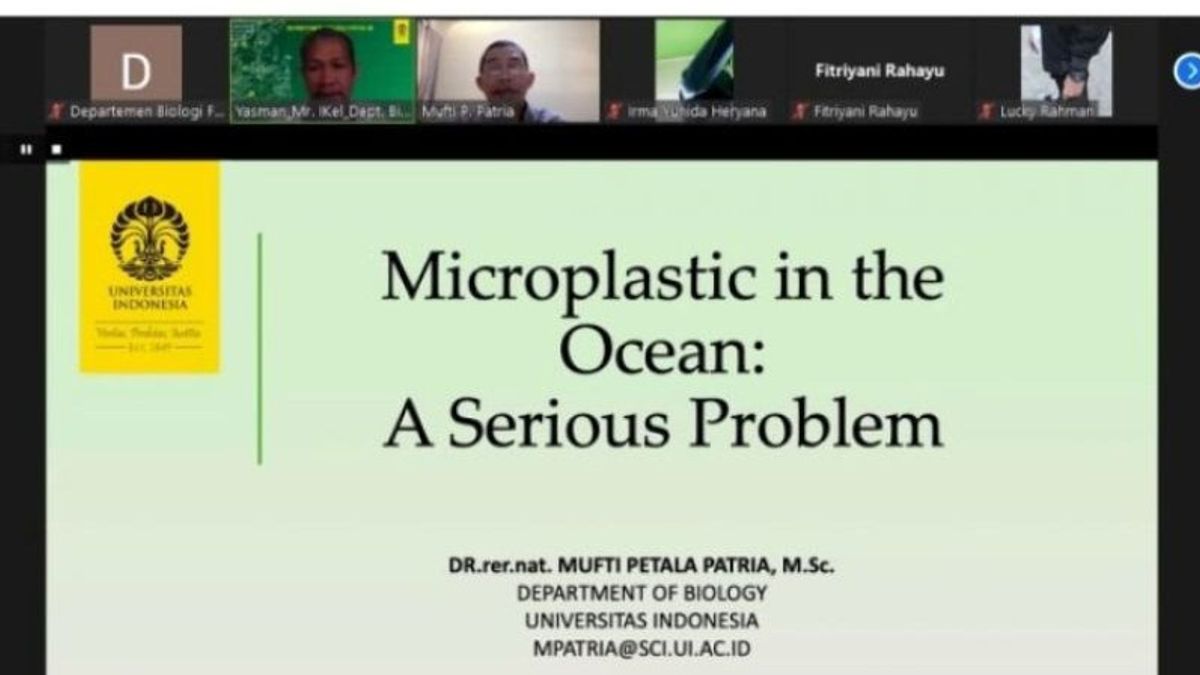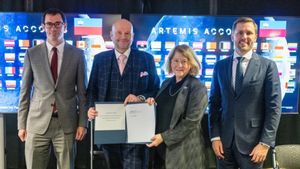JAKARTA – The waste problem is a very serious problem because it can threaten ecosystems and human health. Lecturer of Oceanography and Marine Biology, Faculty of Mathematics and Natural Sciences, University of Indonesia (FMIPA UI) Dr. rer. grout. Mufti Petala Patria stated that there was a need for proper policies in handling waste, especially from plastic materials.
"The high production of plastic will mostly become waste. Around eight million tons of plastic waste will be disposed of or deposited in the sea. Much of the garbage in the sea is washed up on the coast and a lot of it is floating on the currents on the sea surface. Plastics in the oceans are very disturbing marine animals," explained Mufti in his statement, Wednesday, June 15, as quoted by Antara.
He gave an example of garbage from fishing nets that ensnare marine animals such as turtles, sharks, whales. In addition, marine debris can also be considered by marine animals as food and when ingested will affect the digestive system to cause death in the animal.
Mufti also said that there are also types of plastic waste that are harmful to marine biota and ecosystems, namely microplastics. Microplastics are plastics smaller than 5mm in size. Microplastics themselves are grouped into two types, namely primary and secondary microplastics.
Like ordinary plastic waste, microplastics can also enter the body of animals because they are considered food. One of them is sea shells that filter sea water to take food ingredients. Based on the results of his research in Muara Kamal, one green mussel can contain from 7 to 469 microplastic particles.
In addition, microplastics can also enter the human body from seafood that is consumed. This becomes like a cycle, humans produce primary and secondary microplastics, then these microplastics are carried by currents to the oceans and eaten by marine animals which are consumed by humans again.
"The results of research on several experimental animals, microplastics will have an effect on chromosomal changes that can cause infertility, obesity, and cancer. In addition, microplastics can also cause abnormal immune responses. This may also occur in humans," said Mufti.
Therefore, there is a need for awareness and seriousness in overcoming the problem of microplastics which not only threatens marine ecosystems but also human health.
Mufti said the main things that can be done are reducing the use of plastic, reusing plastic (recycle), participating in activities to clean up garbage in rivers or beaches, reducing the use of microbeads in beauty products, participating in campaigns for efforts to reduce plastic use, and supporting organizations that play an active role in reduce plastic waste.
The English, Chinese, Japanese, Arabic, and French versions are automatically generated by the AI. So there may still be inaccuracies in translating, please always see Indonesian as our main language. (system supported by DigitalSiber.id)













